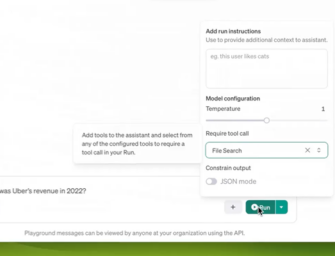Invocable, Formerly Known as Storyline, is Shutting Down, Transitioning Users to Voiceflow

- Invocable is shutting down after raising $770,000 in venture capital over 18-months and pivoting the business away from code-free voice app creation software to voice design UX tools just five months ago
- The company is working with Voiceflow to transition customers to another code-free voice app design and development software solution
- Voiceflow has grown quickly to 7,500 users based in part due to Storyline (Invocable’s predecessor) and PullString shutting down similar businesses over the past six months
Invocable, a company that built a community of 3,000 of Alexa developers for its code-free skill building tool known as Storyline and raised $650,000 in funding less than one year ago, announced this morning that it is shutting down. In total, Invocable raised $770,000 over two rounds according to Crunchbase data. Initial investors came from participation in Y Combinator’s accelerator program, followed by July 2018 funding led by Boost VC. A notice on the Invocable website homepage says:
The Invocable tool will be shutting down on July 1st, 2019. We’ve partnered with the team at Voiceflow to make this transition as easy as possible for our users.
Officially, users will be able to continue creating prototypes for new voice solutions through July 15, 2019, using Invocable. They will also be able to download and view, but not create, prototypes until August 15th, and the service will be permanently deactivated by September 15th. There is a link to a welcome page for Invocable users on Voiceflow today including an onboarding video.
This event reflects the second time in less than six months that Voiceflow is becoming the beneficiary of an Invocable business change. In November, when the Storyline product was discontinued, there were so many users transitioning to Voiceflow that the company had to prematurely end its restricted beta program and make the solution generally available simply to handle the demand. Voiceflow received another boost in new user acquisition when PullString abruptly shuttered its voice app building software after being acquired by Apple in December 2018.
A Shift in Focus Followed by a Shutdown
The former Storyline abruptly shifted its product focus in November 2018 away from the Alexa skill building solution to voice UX design tools when it renamed the business Invocable. Vasili Shynkarenka, Invocable co-founder and CEO, shared in a Medium post this morning that, “Voice apps are not simple, they are hard. You need to be a great voice designer to build an engaging voice app.” That led to the focus on the tools for designers, but Shynkarenka said his team subsequently discovered, “Non-tech creative folks are actually able to create good content, but the app is not just content. A skill is like a huge product on itself, rather than just a content piece. And most content creators are not good at product management.”

Adam Marchick
So, the learnings sound a bit ominous. We have PullString being acquired for less than invested capital, Voice Insider reported recently that Conversation.One was apparently no longer active, and now Invocable is shutting down. Adam Machick co-founded VoiceLabs which quickly became the voice app analytics leader supporting more than 3,000 Alexa skills and Google Actions couldn’t make its advertising-first business model work and then shifted to an eCommerce focus with a pivot to Alpline.ai. That business sold just a few months later to Headspace in what Marchick characterized as a good outcome. He commented this morning about the Invocable news:
“This is the natural progression of an emerging market. Now might be a great time to start a company or maybe it’s two years from now. If you are an entrepreneur, it’s the most important question you should ask. Are you at the front of a big wave or are you two years too early to become a thriving independent company? I don’t think we started too early but we expected independent voice apps to be more valuable sooner. A lot of that was out of our control.”
That sounds somewhat similar to Shynkarenko’s perspective that his team learned some truths that were out of their control. They didn’t see a clear path success as an independent business today. Alexa Champion Mark Tucker is one developer that is disappointed about Invocable’s demise:
“As a developer, I was skeptical that a visual design tool could match the power and flexibility of code. But after using Storyline and seeing others create great skills, the Storyline team earned my respect. I even considered using the tool for customer prototypes. I am sorry to see them go. They had an impact on the voice-first community and we are better than we would have been without their contributions. I wish them the best going forward.
VoiceFlow Offers a Different Perspective

VoiceFlow was created in 2018 and claims to have supported over 7,500 users designing and building voice apps. The company raised $500,000 last year according to Pitchbook and added high profile angel investor later in the year. This was all going on while Invocable was learning about its challenges. Braden Reem, co-founder and CEO of Voiceflow, expressed a more positive outlook on the industry’s future in his own Medium post today:
“Our team believes in a future where voice apps are as ubiquitous as websites…There are already 2.5 billion voice assistants deployed today, and smart speakers are in nearly half of US households — making them the fastest ever adopted technology. For a second, imagine all these voice assistants as personalized search engines for services and information. If you’re driving home and thinking about dinner, you can have a conversation through Alexa to order from a local restaurant. Looking to book a vacation? Ask Google and they’ll connect you with the perfect 3rd party service.
“Many people ask us what the “killer app” is on voice, but we’ve already found it — it’s search. We believe voice apps are conversational nodes on these intention based search engines. Voice apps underperform today because they suffer from poor design and discoverability. Design can be solved through better VUI standards and design tools, while discovery is already improving as the platforms shift from explicit to implicit activation.”
Voice Technology Investment Activity is Picking Up
It’s hard to know whether Invocable’s demise is the result of structural challenges that will forever inhibit voice industry growth or if it is a matter of timing and business model as Marchick suggested. What is undeniable is that investment activity is increasing in the voice technology space. Dashbot, Jargon, and Verbit all raised funding in the last three months. PullString, Assist, and Vocalize.ai sold to larger companies recently after Sayspring and Alpine took a similar path in 2018. Rasa showed last week that even investment in chatbots hasn’t gone away.
There are several more voice technology funding rounds in the works that Voicebot has learned about. So, some companies may be going away, but there are still investors that are bullish on the space. Investor interest doesn’t mean the voice industry market for third-party software tools providers will be accelerating anytime soon. However, it does mean a number of people share Ream’s confidence in the sector. Even Invocable’s Vasili Shynkarenko and his co-founder Maksim Abramchuck are not entirely abandoning what the conversational AI segment. Vasili responded to a Voicebot inquiry this morning about future plans saying:
Maksim and I are working on a new product in the mental health space leveraging our experience in conversational interfaces.
Follow @bretkinsella Follow @voicebotai








